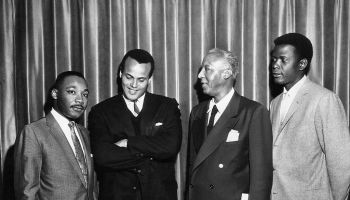In her recent concert in Phoenix, Lady Gaga asserted: “the nature of the Monster Ball is to actively protest prejudice and injustice and the bullshit that is put on our society, because you are a superstar no matter who you are or where you come from, and you were born that way.”
While this is certainly not the first instance in which music and politics have intersected, there is a particular significance about this event that makes it worthy of discussion. With the advent of SB1070, our country has been forced to confront the discriminatory and blatantly racist principles that some of our fellow citizens still cherish. While immigration reform is undoubtedly necessary, it must be enacted in ways that respect and acknowledge the intrinsic value of human life. But this article will not attempt to repeat the political back and forth that has pervaded our media. Instead, I will discuss the nature of “celebrity” and the role artists must play in enacting social change.
[pagebreak]
In our superficial, reality-tv drawn culture, individuals favor style over substance. When we turn on the radio or the television or buy a ticket to watch a recently released film, we do not expect to be educated or informed; instead, we merely hope to be entertained. We do not expect Ke$ha to provide us with insight on the US War on Drugs or on the War in Iraq. We do not expect the Jersey Shore cast to inform us of international human rights violations or the need for educational reform. We follow personalities like Kim Kardashian and Heidi Montag, because they do not remind us of the socioeconomic problems consuming this country and the world. This is the nature of their “celebrity”: we follow them, because their lack of substance serves as an escape from the harsh conditions of real life. Their “reality” seems better than our own.
This is why we should applaud Lady Gaga, because she dares to have substance in a culture that rewards the opposite. I am not insinuating that all art – e.g. music, film, television, etc. – must be propagandized or politicized. I am merely stating that artists must not fail to take advantage of their platform and their ability to incite social discussion through their art and through their actions. The beauty of art lies not in its aesthetic value or in its entertainment value, but in its social value. Art helps us connect with each other in a world teeming with things that divide us – e.g. nationalities, political beliefs, religious beliefs, etc. Lady Gaga and others must use their voices and their art to change more than just the atmosphere of a club and the rhythm of its dancers, it must also change the atmosphere of a world and the rhythm of its people.
















